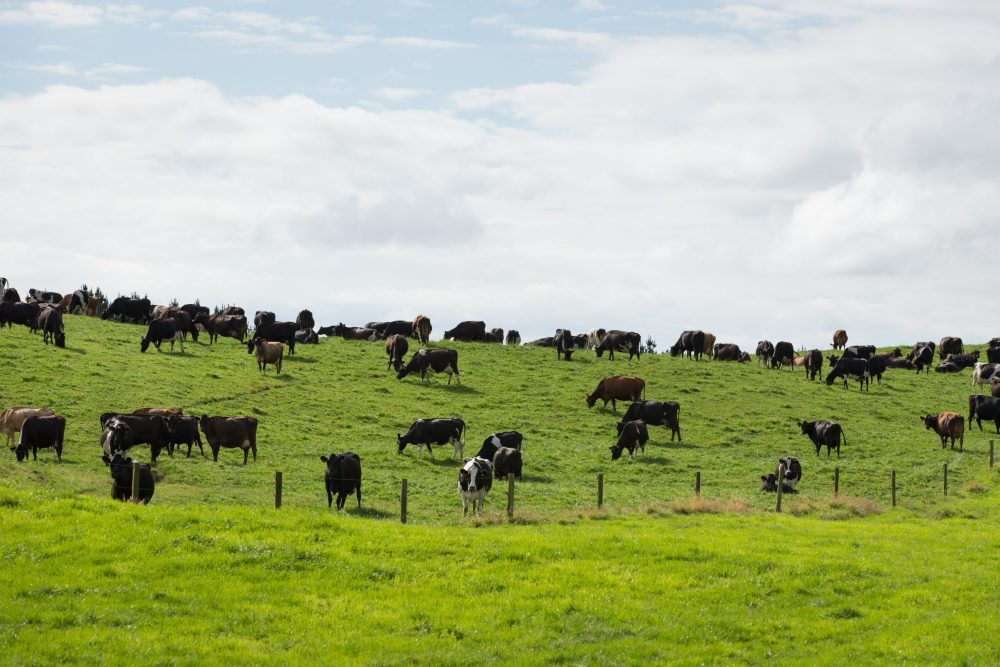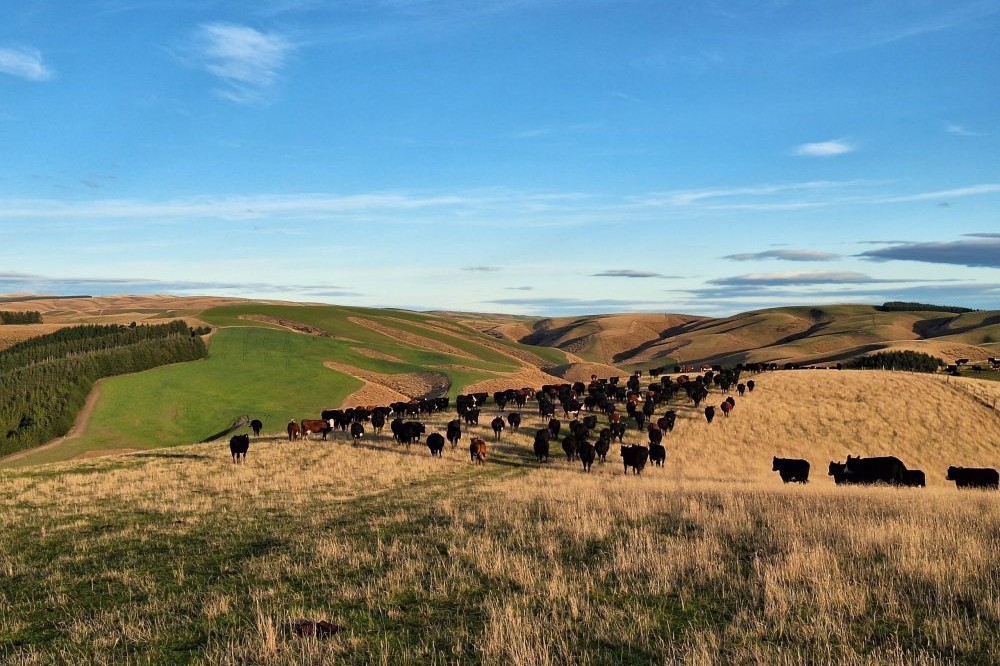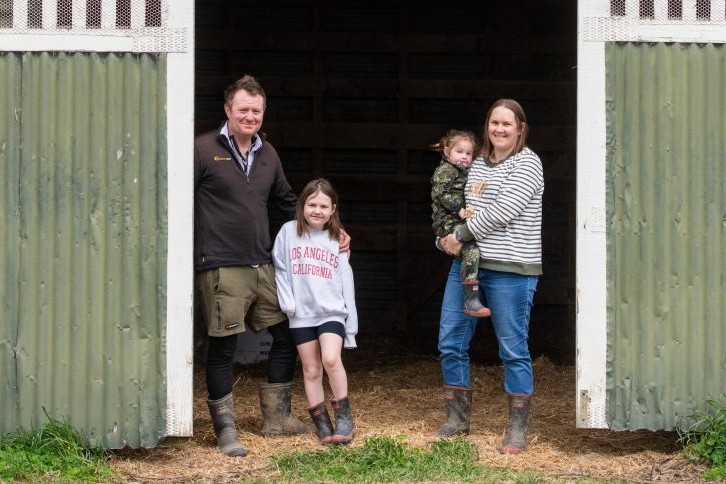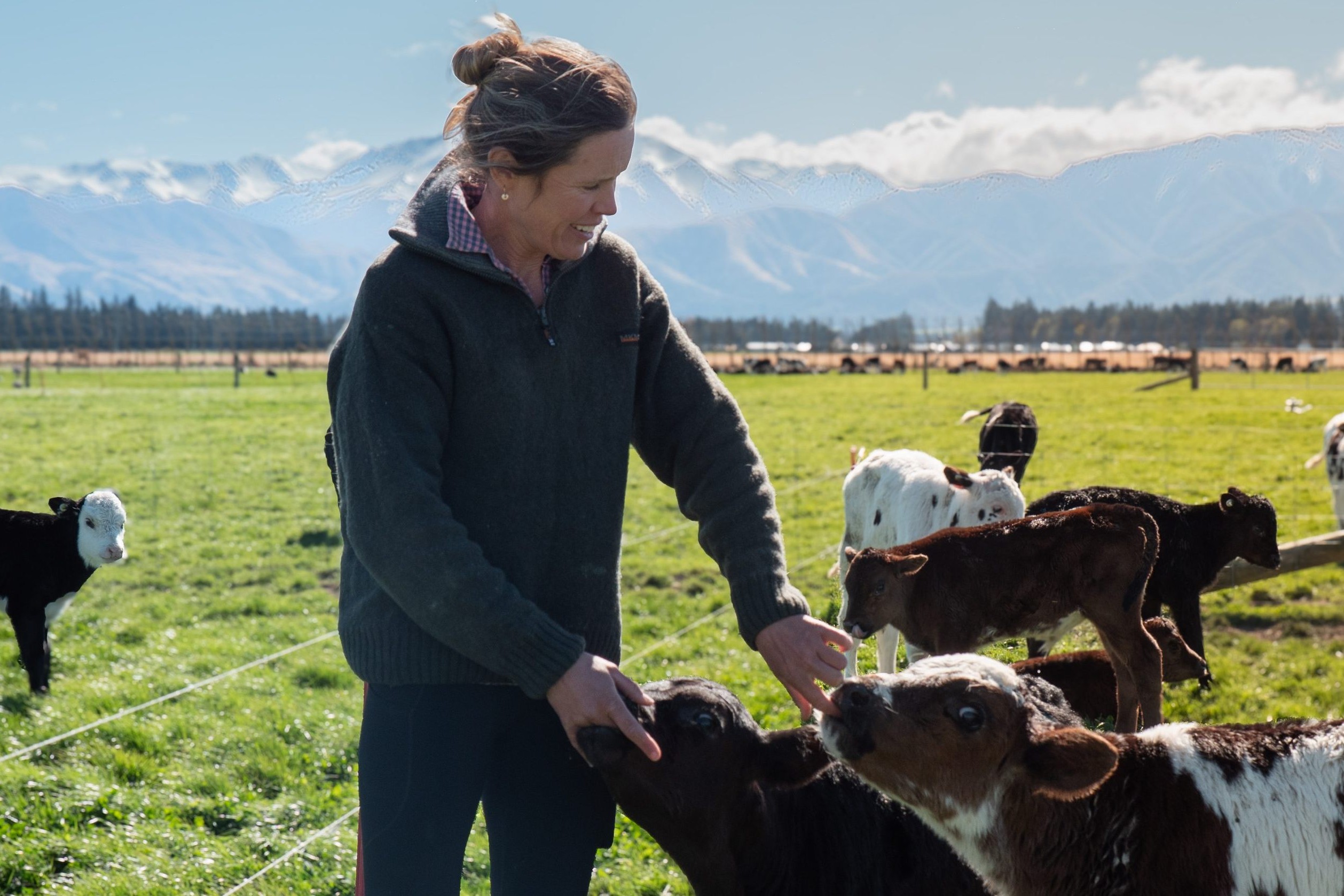BY: JANE SMITH
Team work, hard graft, data collation and collaboration have led to consistently impressive genetic gains in the Perendale sheep breed. These have been especially amplified over the past decade with the assistance of large-scale monitoring and technology.
“We have the ability to utilise our strength as a unified group with large numbers of breeding ewes and a wealth of monitoring data, unpinned by SIL analysis, and are making impressive inroads on all dual-purpose traits,” King Country Perendale breeder Russell Proffit says.
The Perendale breed has a strong history following its initial development by Sir Geoffrey Peren in 1956 at Massey University.
It is a breed built on science and continues to utilise technology to keep at the front of the pack, and the collaboration these registered Perendale NZ breeders are taking part in is something Sir Geoffrey would indeed be extremely proud of. With about 2.4 million lambs born each year using genetics sourced from Perendale NZ stud breeders, this is a role Perendale stud owners take very seriously.
The old saying “the best way to predict the future is to create it” is exactly what this large team of dedicated Perendale breeders are doing by ensuring they are breeding a fit-for-purpose sheep that survives and thrives in all types of climatic conditions.
With more than 25,000 screened ewes (ewes that are scrutinised and registered as stud quality) within Perendale NZ, the traction Perendale breeders are making is impressive to say the least.
“We have two major advantages that we can pass on to commercial sheep flocks – firstly, we have one unified breeding group, Perendale NZ and second but importantly, we have always stuck to our guns of only allowing 100% pure Perendale genetics to be registered, not allowing any percentage of breed deviation within our breed,” West Otago Perendale breeder Mike McElrea says.
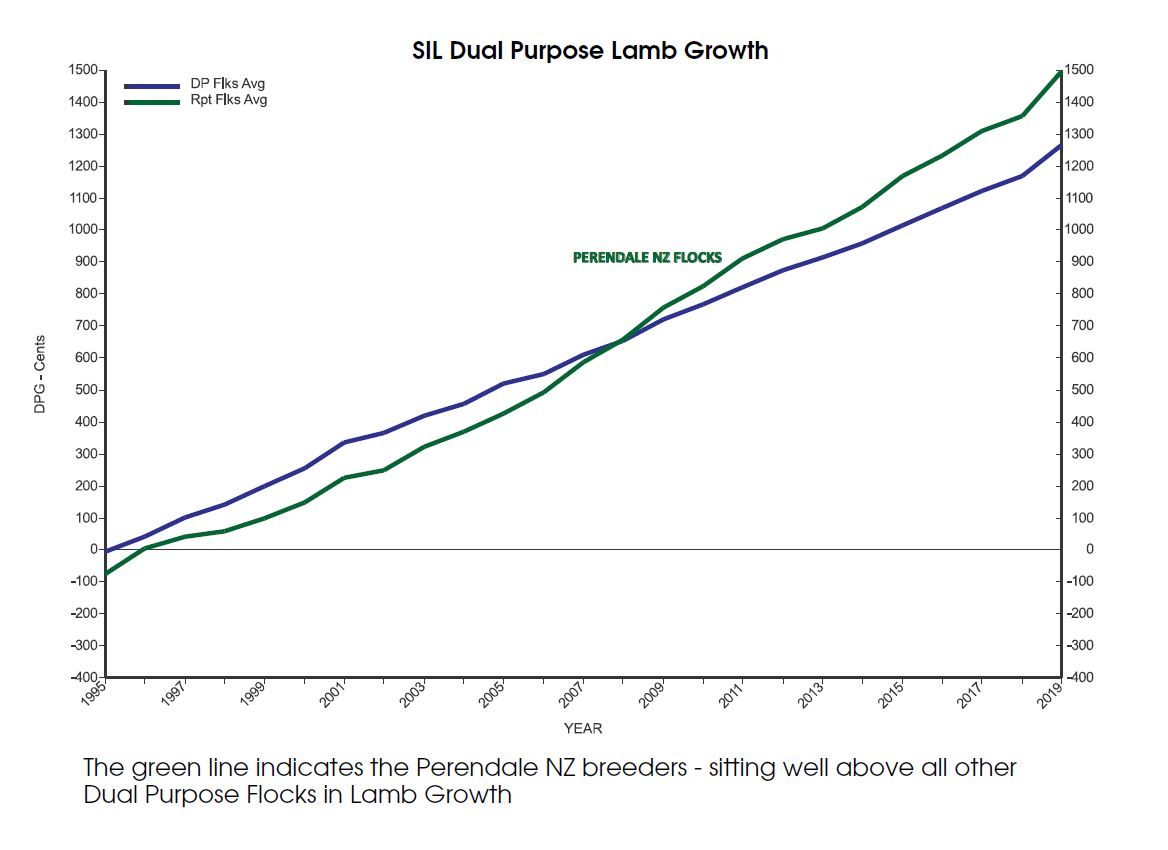
In 2011, Perendale NZ embarked on one of the largest and most comprehensive progeny trials in the country – in a quest to increase the level of scrutiny of an already well linked genetic analysis – “a progeny trial of this scale is like putting genetic gains and monitoring on steroids – the level of information you can harvest from the data is mind blowing,” says David Ruddenklau of North Otago, one of the founders of the initial Perendale NZ Progeny Trial.
The merits in the results of this sizeable trial, which commenced initially in South Island hill country and then expanded to a North Island trial site (and included facial eczema testing) at Smedley Station in the Hawke’s Bay – lie not just in the scale, but in the number of traits that have been analysed and the tough conditions that parallel those throughout the country, ranging from extreme cold, wet conditions at high altitude in the South Island trial, to a massive drought in the 2019/2020 year at the North Island trial site.
A major analysis component
These have been no cruisy laboratory trials – with the natural synchronisation of ewes, a very concentrated tupping period of only six to eight days and a one-hit slaughter date in order to provide very accurate carcase data – including eating quality analysis of all lambs, including pH, fat colour, marbling, shelf life and tenderness.
Maternal traits, a key cornerstone of dual purpose sheep have also been a major analysis component – with the female progeny followed through to weaning weights, tupping weights, condition scores, lamb survival, culling ratio and the ever important longevity of which the Perendale is renowned for.
Four years of scanning data for each cohort of ewes (born as ewe lambs during the trial and DNA tested) is followed through. Lamb yields of over 63% have been recorded, giving terminal breeds more than a run for their money.
With a large base of stud breeding ewes throughout some of the toughest topography in the country, it is no wonder that commercial ram buyers continue to actively seek Perendale genetics from registered breeders, with demand higher than ever for these tough, resilient sheep. This is proven by the independently scrutinised genetic gains the breed is making – underpinned by the SIL database (which is often described as one of, if not the best ovine genetic analysis matrix in the world).
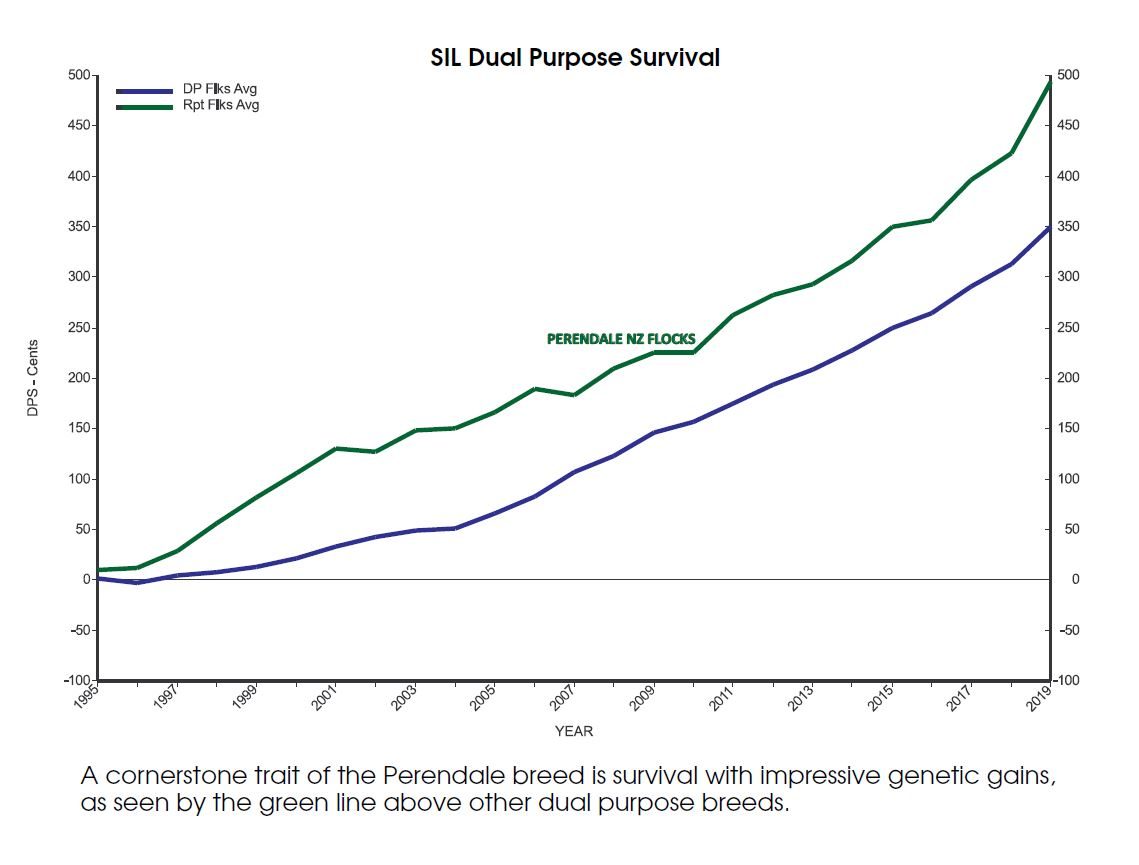
“Breeding the best sheep possible through encompassing new technology and measuring more traits with the greatest accuracy” has become a key tenet for this breed.
The genetic ‘linkage’ that their large scale Perendale NZ progeny trials gives them is something that money can’t buy as this essentially allows a genuine test of each bloodline through analysing how they perform under numerous environmental conditions and challenges.
“This is not some fancy marketing strategy, this is putting all of our genetics under pressure in real conditions, in real time, using real analysis,” points out Warren Ayers, a Perendale breeder from Southland.
“It would be hard to find another breed that is collaborating on this scale, and at the same time being ruthless in all areas of genetic analysis, for the betterment of the dual-purpose sheep industry.”
One theme that is obvious when talking to Perendale NZ breeders is the ethos and passion that comes with running family owned, commercial scale stud operations. This is a group of people with a common goal who genuinely want the sheep industry to be as efficient as possible, and not be pushed out by a monoculture of pinus radiata plantations, or be marketing the ‘latest and greatest sheep breed fad’, to be gone again in five years’ time as they have seen with a myriad of composite genetics.
“The family values of our stud operators run deep within our breed society, Perendale NZ. We are not paint-by-numbers corporate stud businesses that are run by an urban geneticist with a myriad of staff doing the monitoring,” Proffit says.
“We are the ones that are out there in the paddocks and hill country blocks with the stock, we know what works and what type of sheep our clients around the country are after. I am proud to be associated as a Perendale NZ breeder and believe the time, investment and effort that our breeders put into ensuring our genetic gains are expedited, is coming to fruition in Perendale flocks all around the country”.
- Jane Smith is a North Otago farmer and co-owner of Newhaven Perendale genetics.

